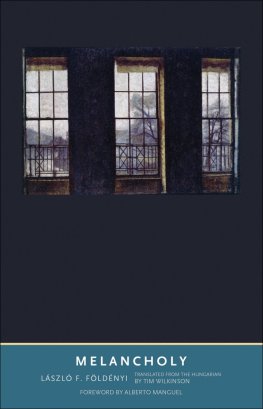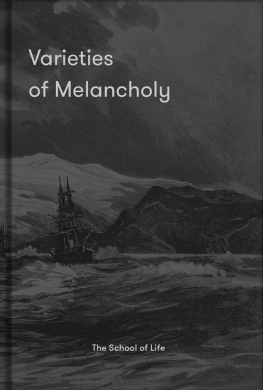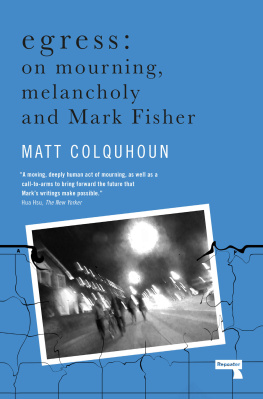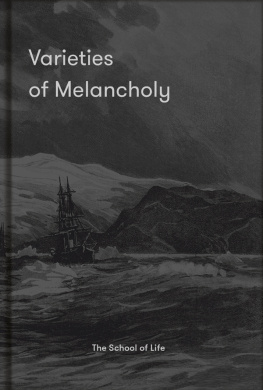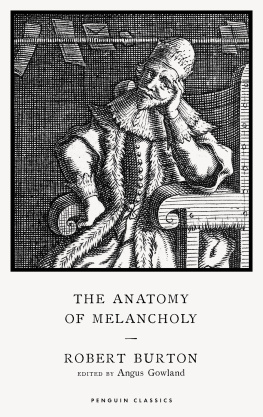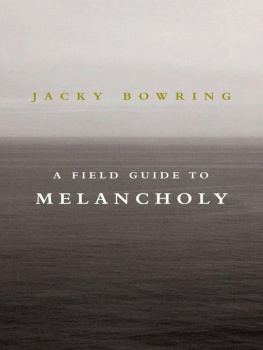About the Author
Alina N. Feld (Ph.D., Boston University) teaches religious studies, ethics, and Western and Eastern philosophy at Hofstra University and Dowling College in New York. Her core interest has been philosophical investigation of the meaning of being human and related questions of moral responsibility, with special attention to issues of transcendence and fallibility. Her scholarly work has been cross-cultural and interdisciplinary, attempting to mediate between different philosophical and spiritual traditions, and between theological and cultural dimensions of modernity.
Acknowledgments
I wish to thank all those who directly contributed to bringing this book through the long process of conception, gestation, and execution to its present published state.
I owe a great debt of gratitude to my three mentors during my years of advanced study, who have deeply enriched my life: Thomas J. J. Altizer, whose passionate apocalyptic theology has been a ferment to my own thinking of melancholia; his confidence in my work, critical responsiveness, relentless support, and personal friendship have sustained and called me forth through the years. Ray L. Hart, for whom philosophy is a personal task of thinking and living with deliberation and art, whose subtly intricate vision sketched in Unfinished Man and the Imagination, progressively deepened in his more recent thinking on God and Nothing, opened up unsuspected horizons for understanding myself and the world. Alan M. Olson, who gave me sustained support and encouragement, generously sharing his intellectual and academic advice, encompassing conversation, and mindfulness of the other; his being among the few still tempted by transcendence in spite of all rumors of its demise has been a source of inspiration, especially for a writer on melancholy.
My profound gratitude goes to Lissa McCullougha dear friend, scholarly advisor, and partner in existential conversation, whose thinking, writing, and life are marked by lucidity, probity, moral conscience, and compassionfor having taken upon herself the responsibility of copyediting this book. Turning editing into an art, she thoroughly and painstakingly brought this work into its present form and her enthusiasm for it helped to bring it to completion.
My deep thanks are due to Lexington Books, a wholly owned subsidiary of the Rowman & Littlefield publishing group: on the editorial side, to Jana Hodges-Kluck, associate aquisition editor, and Eric Wrona, her editorial assistant, for their indispensable professional support, informed guidance, and abiding spirit of patience throughout the process of reviewing, editing, and publishing. I am also indebted to Della Vache, assistant managing editor, and Eric Hardy, from the production department, as well as to the design team and the typesetting team for their labor in bringing it forth. I owe particular thanks to Jonathan Sisk, senior executive editor at Rowman & Littlefield, for including this work in their list. In addition, a note of thanks to Sarah Stanton, acquisitions editor at Rowman & Littlefield, who referred me to Lexington Books. I would like to acknowledge, as well, the anonymous reviewer of my manuscript who supplied a most appreciated guidance.
I would like to express warm thanks to Michael L. Raposa, whose book Boredom and the Religious Imagination prompted me to think philosophically about boredom, for having honored my request to write the foreword. My gratitude is also due to Richard Kearney for sharing chapters of his manuscript Strangers, Gods, and Monsters and for the inspiration of his hermeneutics of the possible God, and Edward S. Casey and Tom Rockmore for their gracious willingness to help my project along. I acknowledge with gratitude William Desmond, always willing to discuss metaxic being, for encouraging thinking without intimidation, David G. Leahy, whose intellectual range and postapocalyptic vision have continued to call me forward beyond the death of God. Special gratitude is due to the Karl Jaspers Society of North America (KJSNA), in particular to Alan M. Olson and Helmut Wautischer, for help and guidance I received at conferences to which I delivered earlier versions of a couple chapters in this book. Thankful acknowledgments go to David M. Eckel, Peter S. Hawkins, Robert C. Neville, and the late Harold Oliver, for the intellectual stimulation their works has represented as well as for having manifested enthusiam for my work on melancholy and suggested publication.
I acknowledge my gratitude to Monique Pommier, whose depth of insight, grace of spirit, intellectual sophistication, and always unexpected vision have steadied my steps, straightened my path through uncertain terrain, and sustained my courage in the process; and Calin Vartosu, my fellow traveler in the quest for ultimate answers, whose ludic nature and mercurial spirit can instantly transform melancholy into pure joy.
Finally I owe thanks to my family for their inspiration and encouragement: to my brother Sorin-Alexander Bradford whose musical compositions and melancholic nature have presented me with a superior aesthetic ideal and a task of relentless self-questioning, as well as his wife Margot, an accomplished music producer and connoisseur, for their patient witnessing. Last but not least, Geza, my husband, a secret melancholic himself and poet at heart, engaged in a continual work of self-conquering, whose light-heartedness, perseverance, and faith have never failed to amaze and humble me. My deep gratitude goes to him for forbearance that seemed endless, unfailing assistance, and caring understanding throughout the period in which this work was completed.
PERMISSIONS
My thanks are due the following publishers for having granted permission to quote extensively from their texts: G. W. F. Hegel, Philosophy of Mind, translated by A. V. Miller (1970), by permission of Oxford University Press. Immanuel Kant, Anthropology from a Pragmatic Point of View, translated by Victor Lyle Dowdell, copyright 1978 by the Board of Trustees, Southern Illinois University, by permission of Southern Illinois University Press. Karl Jaspers, General Psychopathology, vol. 2, translated by J. Hoenig and Marian W. Hamilton, with a new introduction by Paul R. McHugh, M.D. 1997 The Johns Hopkins University Press, by permission of the publisher.
Oxford University Press kindly gave permission to republish two illustrations from The Nature of Melancholy: From Aristotle to Kristeva, edited by Jennifer Radden (2000): Melancholy, An Allegory (oil, 1532) by Lucas Cranach the Elder (fig. 3, p. 7), and Melencholia I (engraving, 1514) by Albrecht Drer (fig. 6, p. 14).
A section of chapter 8 was published online in Existenz: An International Journal in Philosophy, Religion, Politics, and the Arts 3:2 (Fall 2008): 1020, and is reprinted here in revised form with permission.
DISCLAIMER
This book does not intend to be a scientific investigation of a mental condition, but rather a selective study of hermeneutical hypotheses concerning melancholy from historical periods ranging from Greek antiquity until the present. The study refers to Western Judeo-Christian philosophical and theological theories only, and does not address the strictly medical aspects of the condition. Moreover, although the principle of selection is philosophical significance, a few major thinkers of melancholy are not comprehensively represented here. The most illustrious of these is certainly Sren Kierkegaard. The rationale for his absence is the monumental stature of the Danish philosopher as an exhaustive hermeneutician of melancholy whose work would demand an extensive study unto itself.
A.N.F.
Afterthoughts
Now at the conclusion of the present study, we must question whether the task proposed in the Introduction has been fulfilled and what the yield of this investigation ultimately is. In our search for the origins of the condition, we have discovered and attended to the essential and structural identity and specific difference between melancholy and acedia. The distinction between the two humors, between phlegm and melancholy, as well as the distinction between the two sins of acedia and of tristitia, have brought terminological and conceptual clarity into the discussion of a condition that is still burdened by conceptual frames that are either excessive or rigidly reductive. The genealogical investigation has made visible the value inherent in the symbolism of melancholy-acedia, and furthermore a hermeneutics of its symbolism based on this value. The condition emerged in symbols of heterogeneous traditions and systems, namely, theological, metaphysical, medical, astrological, mythological, psychological, phenomenological, and existential. In these symbolic representations or paradigms, the condition offered itself to be anatomized. Thus the limbs of the Dameas both melancholy and acedia used to be referred to in medieval allegoriescould be identified and the Dame remembered imaginatively. Its symbolic life has been one of countless metamorphoses: a constitutive metaphysical element of the world, humor, sin, the passion of nothing, innate capacity for the sublime and the tragic, metaphysical potency of nonbeing, diminished psychic function of activity, non-


